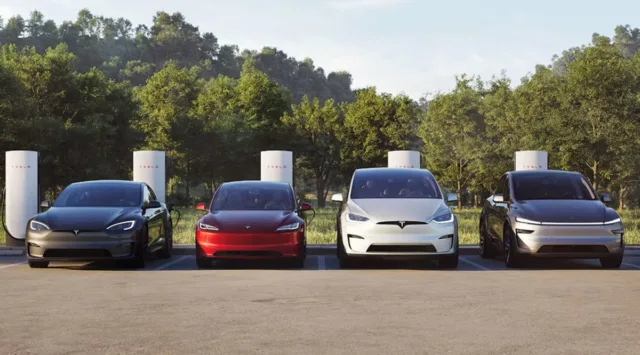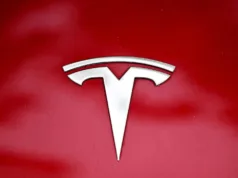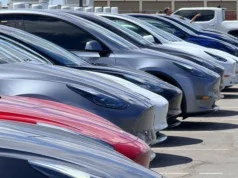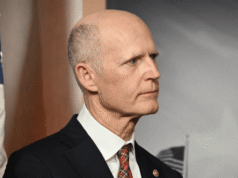Support CleanTechnica’s work through a Substack subscription or on Stripe.
Elections have consequences. Boy, howdy, do they ever! As soon as the last presidential election was over, several US manufacturers read the writing on the wall and realized trade relations between the US and China were about to get bumpy. News reports this week indicate Tesla has quietly told its suppliers that it expects them to supply parts for its cars that are not sourced from China.
Tariff and trade issues are just the latest piece of the puzzle. The COVID-19 pandemic caused massive disruptions in supply chains all around the world. It can be argued the pandemic exposed the flaws in the economic model known as globalization and made manufacturers painfully aware that outsourcing comes with risks that may not have been fully appreciated previously.
According to the Wall Street Journal, those disruptions first spurred Tesla to begin rethinking its supply chains for its vehicles manufactured in the US. The current furor over tariffs and the push to demonize China has accelerated the company’s efforts to decouple its manufacturing in the US from Chinese suppliers.
Tesla North American Content
Just how much does Tesla rely on parts supplied from countries other than the US and Canada? According to data from NHTSA, its vehicles have a higher North American content, on average, than any other US manufacturer. But that does not mean they are entirely US or North American made. Not A Tesla App breaks the percentages down as follows:
It goes on to say, “The most interesting takeaway from this is that the car manufacturers that you’d assume would be most American — the Detroit Big Three — are, in fact, some of the least American you can find. Tesla, on the other hand, holds the crown for most North American made cars — while also being based in the United States.”
China remains a leading producer of auto parts, including chips, batteries, and essential materials, many of which are more affordable due to its large-scale production, lower costs, and weak currency, Interesting Engineering reports. Tesla executives have faced challenges navigating the uncertainty created by shifting tariffs in the US–China trade conflict. Those policy disruptions have made it harder for Tesla to establish a consistent pricing strategy, according to sources familiar with the matter.
Change Began Months Ago
There are reports that Tesla began turning to non-China based suppliers earlier this year and has now notified its primary suppliers that they have until 2027 to entirely purge those suppliers from their supply chain. The trade and tariff conflicts roiling businesses all around the globe have convinced Tesla to build supply chains that are more resilient to political disruptions.
When China got into a spat with Dutch chip maker Nexperia earlier this year, that had knock-on effects for many automakers who relied on Nexperia chips, including Tesla. “Interestingly, Tesla has been encouraging Chinese suppliers to set up shop in Mexico and Southeast Asia for years. This could potentially allow Tesla to sidestep tariffs that are aimed solely at China itself. It also halted the use of Chinese-made lithium-iron-phosphate batteries in favor of making them in Nevada next year,” according to CarScoops.
GM Facing Supply Chain Issues As Well
Tesla is not the only US automaker facing these troubled waters. General Motors is working to distance itself from Chinese parts and materials, a shift that has taken on greater urgency as trade conditions continue to change, says CarScopes, citing unnamed industry sources. General Motors in particular has reportedly instructed thousands of its suppliers to phase out Chinese content from their operations no later than 2027.
With relations between the United States and China still strained, GM has been focused on strengthening its supply chain in ways it hopes will reduce future disruptions. It is understood that GM is especially focused on limiting Chinese content in vehicles built in North America and would prefer to source those parts from nearby factories.
Unnamed sources told Reuters that GM is open to non-US supply lines, just as long as they are not in China. It is also thought to be urging suppliers to stop sourcing parts and materials from Russia and Venezuela.
While GM has yet to comment on the report, chief executive Mary Barra did recently note the company has been “working now for a few years to have supply chain resiliency.” The automaker’s global purchasing chief, Shilpan Amin, also confirmed that, due to supply chain disruptions, it has been forced to shift away from relying solely on countries that can supply the least expensive parts. According to some supplier executives, China has become so dominant in certain areas that it can be hard to find alternatives.
Disrupting 30 Years Of Stable Trade Relations
The head of the Vehicle Suppliers Association, Collin Shaw, notes that existing supply chains involving China have been established over the past 20 to 30 years and re-configuring them quickly — which is what the current administration wants — is a tall order. “It’s not going to happen that fast,” he told Reuters.
There has been some rapprochement between the US and China of late, but manufacturers cannot make long term plans based on short term policy changes. The mercurial nature of the US tariff initiative is the last thing manufacturers want because it destabilizes their business plans, which typically results in higher costs to consumers and lower profits for manufacturers. It is curious that so many major corporations actively — even aggressively in the case of Tesla — supported the incumbent. They are really in no position now to complain, therefore, at least not loud enough for anyone to hear.
Business depends on stable trade relations. Having the rug pulled out from beneath 30 years of predictable industrial policy is hurting lots of companies and most consumers. As Tesla in particular is striving to reduce costs so it can offer it customers lower priced vehicles, the trade war with China will make that task significantly more challenging.
The oddest part of all this is that the administration expects companies to adapt and adjust on the fly and undo three decades of stable, predictable trade relations in a matter of months, if not weeks. A rational government would see the absurdity of that position.
Sign up for CleanTechnica’s Weekly Substack for Zach and Scott’s in-depth analyses and high level summaries, sign up for our daily newsletter, and follow us on Google News!
Have a tip for CleanTechnica? Want to advertise? Want to suggest a guest for our CleanTech Talk podcast? Contact us here.
Sign up for our daily newsletter for 15 new cleantech stories a day. Or sign up for our weekly one on top stories of the week if daily is too frequent.
CleanTechnica uses affiliate links. See our policy here.
CleanTechnica’s Comment Policy









